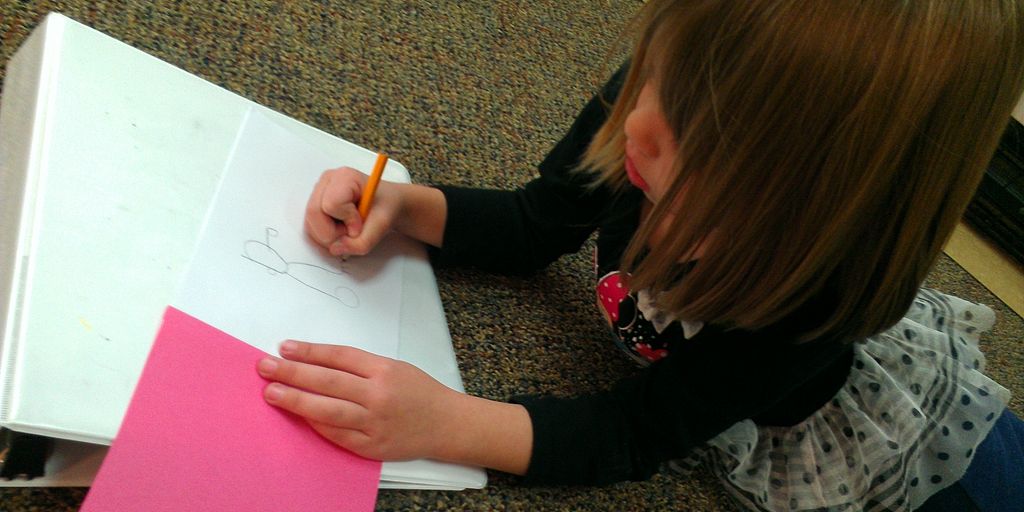
Parental guidance plays a crucial role in the holistic development of a child. It is not only about providing direction but also about nurturing a child’s individual strengths and helping them cultivate a sense of morality and responsibility. Effective parental guidance involves observing, recognizing, and assessing a child’s unique traits and offering consistent, predictable, and nonviolent responses to their behavior. This article explores the multifaceted importance of parental guidance in child development, its impact on moral and social growth, and strategies for parents to enhance their guidance skills.
Key Takeaways
- Parental guidance is essential for shaping a child’s moral and social behavior, helping them understand what is right and wrong, and how to interact respectfully with others.
- Effective parental guidance involves recognizing and nurturing a child’s individual strengths and characteristics, fostering their unique potential.
- Consistency and predictability in parental guidance, combined with nonviolent responses to misbehavior, are key to effective parenting.
- Balancing authority with autonomy is crucial; parents should aim to be authoritative rather than authoritarian, encouraging independence while setting achievable goals.
- There are various resources available to help parents improve their guidance skills, including self-evaluation tools, child behavior management programs, and educational workshops.
Understanding the Role of Parental Guidance in Child Development

Defining Parental Guidance
Parental guidance refers to the way parents teach, assist, and facilitate a child to manage their emotions and behavior. Parental guidance is key in helping children develop their own sense of morality and responsibility. It involves observing, recognizing, and assessing a child’s individual traits and then cultivating their strengths.
Historical Perspectives on Parental Guidance
Historically, parental guidance has evolved significantly. In earlier times, it was often more authoritarian, with strict rules and expectations. Over time, the approach has shifted towards a more democratic and authoritative style, emphasizing the importance of understanding a child’s behavior and responding in a consistent and predictable manner.
Modern Theories on Parental Guidance
Modern theories on parental guidance highlight the importance of a balanced approach. This includes being authoritative rather than authoritarian, which means providing leadership in a democratic manner. Effective parental guidance involves pointing out and praising good behavior while responding to misbehavior in a nonviolent manner. Child development researchers emphasize that guiding children involves walking alongside them and showing them the way rather than doing things for them.
Parental guidance is so vital because it starts children on the path to developing their own sense of morality and responsibility.
The Impact of Parental Guidance on Moral and Social Development
Developing a Sense of Morality
Parental guidance is so vital because it starts children on the path to developing their own sense of morality and responsibility. Parents promote children’s moral understanding by providing domain-appropriate and developmentally sensitive reasoning and explanations about the child’s social interactions. This helps children understand the difference between right and wrong, and fosters a sense of empathy and justice.
Cultivating Social Skills
Intentional parenting plays a crucial role in the social development of children. Every part of parenting should be intentional, aiming for the child to grow physically, mentally, emotionally, and socially. By modeling socially acceptable behavior and demonstrating respectful interaction with others, parents help children develop essential social skills. These skills include effective communication, cooperation, and conflict resolution.
Building Responsibility
Parental guidance also helps in building a sense of responsibility in children. By guiding and directing their actions, parents teach children the importance of accountability and the consequences of their actions. This can be achieved through:
- Assigning age-appropriate chores
- Encouraging decision-making
- Providing opportunities for children to take on responsibilities within the family
Effective parental guidance involves walking alongside children, showing them the way rather than doing things for them. This approach helps children learn by doing and fosters a sense of independence and responsibility.
Strategies for Effective Parental Guidance
Observing and Recognizing Individual Traits
Understanding a child’s behavior is crucial for effective guidance. Parents should take the time to observe and recognize the unique traits of their children. This helps in tailoring guidance that suits their individual needs and personalities.
Consistent and Predictable Guidance
Consistency is key when it comes to guiding children. Setting routines and limits helps children understand what is expected of them. Being predictable in your responses to both good and bad behavior fosters a sense of security and trust.
Nonviolent Responses to Misbehavior
Responding to misbehavior in a nonviolent manner is essential. Point out and praise good behavior while addressing misbehavior calmly and constructively. This approach not only corrects the behavior but also teaches children how to handle conflicts and emotions in a healthy way.
Strong parental guidance doesn’t mean you’re too strict or too firm. It means you’re authoritative, which implies a democratic form of leadership.
Guiding children without being coercive or controlling is extremely important and can be very challenging. However, with the right strategies, parents can provide effective guidance that prepares their children for independence.
Balancing Authority and Autonomy in Parental Guidance
Balancing authority and autonomy in parental guidance is crucial for fostering a child’s growth and independence. Authoritative parenting is often seen as the most effective approach, as it combines firm guidance with respect for a child’s autonomy. This method encourages children to develop self-discipline and responsibility without feeling oppressed or overly controlled.
Authoritative vs. Authoritarian Approaches
Authoritative parents aren’t just trying to enforce compliance. They recognize and encourage a child’s sense of autonomy. They want kids to develop self-discipline and responsibility. In contrast, authoritarian parents tend to impose strict rules and expect obedience without question, which can stifle a child’s independence and self-esteem.
Encouraging Independence
To foster independence, parents should establish boundaries that are developmentally appropriate for their child’s age, temperament, and abilities. Avoid setting unrealistic or overly strict rules. Instead, provide opportunities for children to make choices and take on responsibilities that are suitable for their developmental stage.
Setting Achievable Goals
For a child to be able to grow into an autonomous person, parents must keep away from being too protective while supporting them to reach their full potential. This involves setting high, but not too demanding, achievement goals for the child. Clear and flexible limitations and expectations should be properly explained to children, not just announced.
Guiding children without being coercive or controlling is extremely important and can be very challenging. How can parents do this successfully? The most effective and suitable guidance is democratic guidance, where you set clear and flexible limitations and expectations, have a disciplinary system that focuses on learning, and let the child negotiate on their behalf and question authority, but not take over or manage the authority.
Challenges and Solutions in Providing Parental Guidance
Dealing with Behavioral Issues
Parents often face significant challenges when dealing with their children’s behavioral issues. Two key approaches to overcoming challenges in parenting include seeking support from professionals and accessing relevant resources, as well as building a strong support network. It’s essential to understand that every child is unique, and what works for one may not work for another.
- Seek professional help when necessary
- Access relevant resources
- Build a strong support network
Understanding a child’s behavior and responding appropriately can make a significant difference in managing behavioral issues effectively.
Managing Emotional Needs
Addressing the emotional needs of children is crucial for their overall development. Parents should aim to establish open communication and create a safe environment where children feel comfortable expressing their emotions. This involves being empathetic, patient, and supportive.
- Establish open communication
- Create a safe environment
- Be empathetic, patient, and supportive
Avoiding Overprotectiveness
While it’s natural for parents to want to protect their children, being overly protective can hinder their development. It’s important to strike a balance between providing guidance and allowing children to experience and learn from their own mistakes. Encouraging independence and setting achievable goals can help in this regard.
- Encourage independence
- Set achievable goals
- Allow children to learn from their mistakes
Striking a balance between authority and autonomy is key to effective parental guidance.
Resources for Enhancing Parental Guidance Skills
Self-Evaluation Tools for Parents
Self-evaluation tools are essential for parents to reflect on their parenting styles and effectiveness. One valuable resource is the ‘12 Questions for Parent Self-Evaluation‘ guide. This guide explores various dimensions of child guidance, helping parents understand their strengths and areas for improvement.
Child Behavior Management Programs
Child behavior management programs offer structured approaches to address and improve children’s behavior. These programs often include techniques for positive reinforcement, setting boundaries, and nonviolent responses to misbehavior. One recommended program is the 35-day Parenting Program, which provides comprehensive strategies for managing children’s behavior effectively.
Educational Workshops and Seminars
Educational workshops and seminars provide parents with the opportunity to learn from experts and interact with other parents. These events cover a wide range of topics, from child development to effective parenting strategies. Attending these workshops can significantly enhance a parent’s ability to provide strong and consistent guidance.
Investing time in these resources can lead to better outcomes for both parents and children, fostering a healthier and more supportive family environment.
Conclusion
In conclusion, the importance of parental guidance in child development cannot be overstated. Effective parental guidance involves observing, recognizing, and nurturing a child’s unique characteristics while setting a foundation for moral and responsible behavior. By walking alongside their children and showing them the way, parents help cultivate well-adjusted individuals who can navigate the complexities of life with confidence and integrity. Consistency, responsiveness, and a balanced approach to setting limits are key elements in providing the support children need to reach their full potential. Ultimately, strong parental guidance shapes not only the child’s present but also their future, fostering a generation of responsible and capable adults.
Frequently Asked Questions
What is parental guidance?
Parental guidance involves observing, recognizing, and assessing a child’s individual characteristics and then cultivating their strengths. It includes shaping and modeling socially acceptable behavior and demonstrating appropriate interactions.
Why is parental guidance important?
Parental guidance is crucial as it helps children develop their own sense of morality and responsibility. It sets them on the path to becoming well-adjusted individuals by teaching them how to behave, manage emotions, and respect boundaries.
How can parents provide effective guidance?
Parents can provide effective guidance by understanding their child’s behavior, praising good behavior, responding to misbehavior nonviolently, and being consistent and predictable. Effective guidance is authoritative, not authoritarian.
What is the difference between authoritative and authoritarian parenting?
Authoritative parenting is democratic and involves guiding children while encouraging independence. Authoritarian parenting is strict and controlling, often leading to less positive outcomes in child development.
How does parental guidance impact a child’s social skills?
Parental guidance helps cultivate social skills by modeling respectful interactions and teaching children how to navigate social situations. Consistent guidance and responsiveness to emotional needs are key to developing strong social skills.
What resources are available for enhancing parental guidance skills?
There are various resources available, including self-evaluation tools for parents, child behavior management programs, and educational workshops and seminars. These resources can help parents improve their guidance techniques and better support their child’s development.






